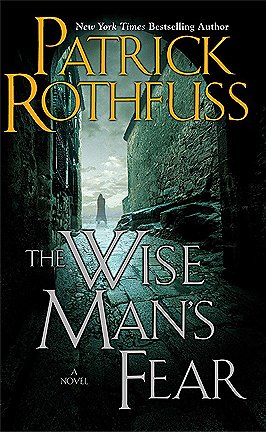A Personal Reflection on The Wise Man’s Fear
Patrick Rothfuss’s The Wise Man’s Fear, the second installment in The Kingkiller Chronicle, had me intrigued from the start. Following the captivating journey of Kvothe, a character rich with potential and mystery, my expectations were sky-high after The Name of the Wind. I dove into this book hoping to uncover more of Kvothe’s story and, dare I say, some answers to the burning questions left on the last page of the first book. But what I found was a mixed bag of enchantment and frustration that ultimately painted a complex picture of Rothfuss’s ambitions as a writer.
From the get-go, Rothfuss transports us back to his mesmerizing world—a place filled with magic, music, and the tantalizing hint of adventure. Kvothe begins his tale, and like an old storyteller at a hearth, he reels us in, only to later wander down winding paths that felt, at times, aimless. One notable aspect was the beautiful prose. Rothfuss has a flair for vivid descriptions that envelop you in his world. The lushness of his writing, while alluring, often led me to lament that it was sometimes at the expense of plot momentum.
Key themes like the search for identity, the nature of storytelling, and the bittersweet pangs of love weave their way through the narrative. However, much of Kvothe’s journey felt repetitive. The familiarity of his experiences in the University left me wishing for a deeper exploration of the overarching mysteries surrounding him—questions about his parentage, his mastery of magic, and his fate that lingered, hauntingly unresolved.
One comment I often found myself reflecting on was that of humor—Rothfuss’s knack for comic relief is splendid. Kvothe’s wit shines throughout, making him an endearing yet exasperating protagonist. Yet, the character of Denna often pulled me out of the whimsical tone that Rothfuss crafts so effortlessly. Her portrayal brought about mixed feelings. I found myself craving a stronger character arc than the one presented: a connection that felt less like an obligatory romantic subplot and more like a genuine exploration of their relationship.
While I appreciated moments of clarity and charm, there were parts of the narrative that felt aimless—what Eric Allen aptly calls "tangents." These sidetracks, filled with secondary adventures, had me yearning for a sharper focus that could tie back into the broader narrative. Rothfuss’s switch between first-person and third-person perspectives felt jarring at times, disrupting the flow of Kvothe’s introspective storytelling.
In conclusion, while I can resonate with Eric Allen’s critique—The Wise Man’s Fear is undeniably uneven—I still believe it could appeal to those who appreciate eloquent writing and rich world-building. It may not be the essential sequel many hoped for, but it offers valuable glimpses into Rothfuss’s imaginative mind. Whether you’re drawn to lush prose, curious about Kvothe’s next steps, or simply love a good character study, there’s enough in this world to warrant a visit, even if it’s just to witness the beautiful chaos of ambition and the pitfalls of storytelling.
I’ll leave you with this thought: Sometimes a journey filled with detours can still lead to a landscape worth exploring—just be prepared for the toll of the road!
Discover more about The Wise Man’s Fear (The Kingkiller Chronicle, #2) on GoodReads >>







